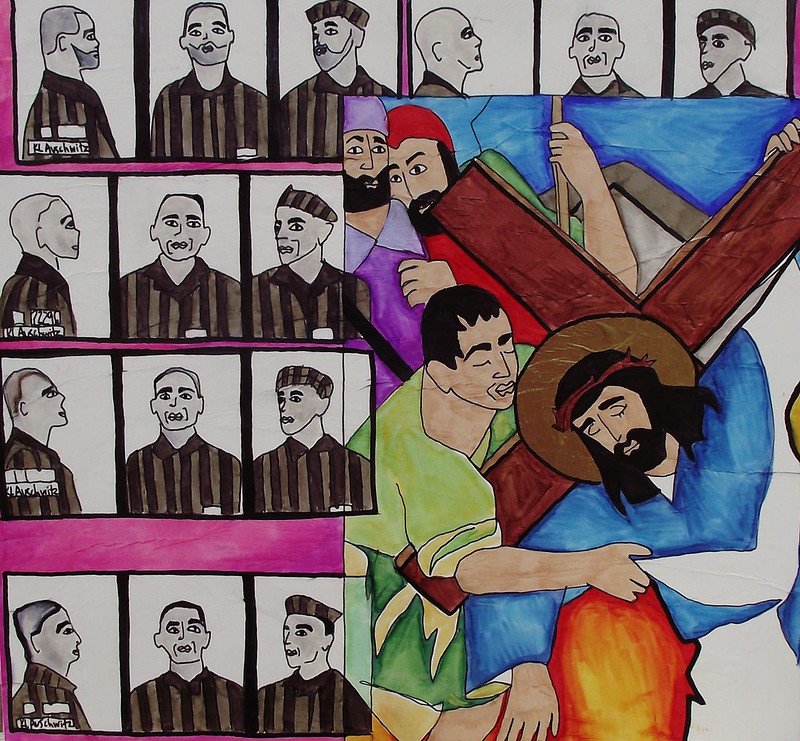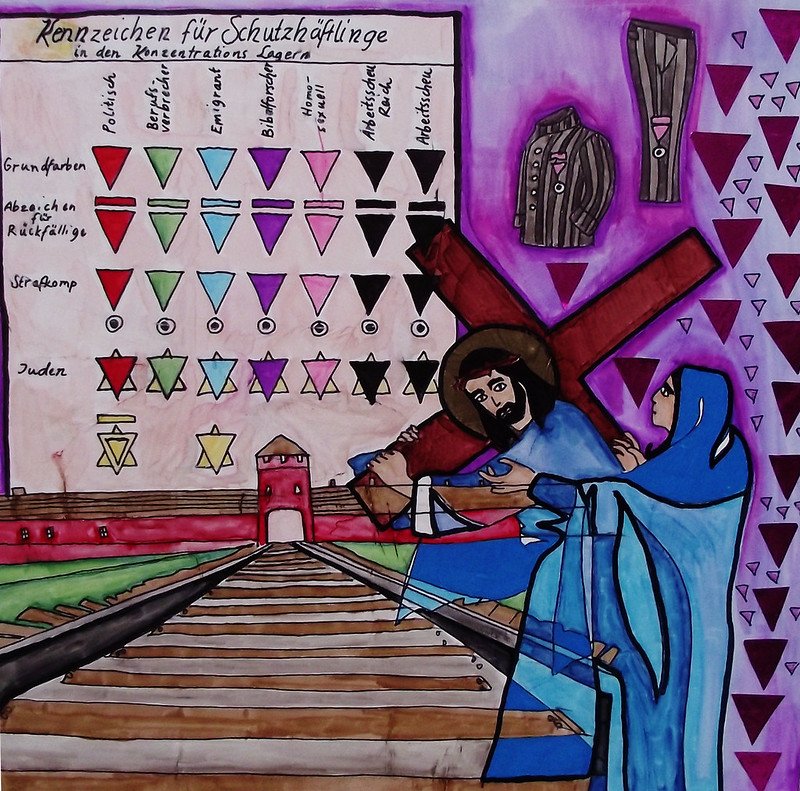Day 7
There is so much that I’ve struggled to say over the years about these various projects. There are two quotes from Frederick Buechner’s excellent book The Magnificent Defeat that perfectly encapsulate the two truths behind the Stations of the Cross. I’m going to include these two quotes alongside three more pieces from Stations of the Cross for LGBTQ+ Equality. Both stations depict the persecution of queer people during the Third Reich.
Every generation crucifies Christ anew. The Apostle Paul said it. So did C.S. Lewis and G.K. Chesterton. Buechner put it this way: Our father. We have killed him, and we will kill him again, and our world will kill him. And yet he is there. It is he who listens at the door. It is he who is coming. It is our father who is about to be born. Through Jesus Christ our Lord.
That idea is at the very heart of these ongoing projects. Jesus is always with us, always listening, always coming into our world. And everyday, every minute, we’re given an opportunity to welcome Christ by providing love and care for those pushed to the margins in our own society, those trapped in systems of injustice, right here and right now. As Jesus assures us in the Gospel of Matthew, whatever we do for the least of these, we do for him. The Stations of the Cross asks us to look at those times when we fail to live up to that invitation. And to pray about it.
Station 3: Jesus falls the first time
1933: The National Socialist German Workers Party bans homosexual groups under Paragraph 175. Homosexuals are sent to concentration camps.
Station 4: Jesus meets his mother
1945: Upon liberation of Nazi concentration camps by Allied forces, some interned for homosexuality are not freed, but required to serve out the full term of their sentences under Paragraph 175.
The other Frederick Buechner quote that inspires this ongoing work is this: Christ never promises peace in the sense of no more struggle and suffering. Instead, he helps us to struggle and suffer as he did, in love, for one another. Christ does not give us security in the sense of something in this world, some cause, some principle, some value, which is forever. Instead, he tells us that there is nothing in this world that is forever, all flesh is grass. He does not promise us unlonely lives. His own life speaks loud of how, in a world where there is little love, love is always lonely. Instead of all these, the answer that he gives, I think, is himself. If we go to him for anything else, he may send us away empty or he may not. But if we go to him for himself, I believe that we go away always with this deepest of all our hungers filled.


